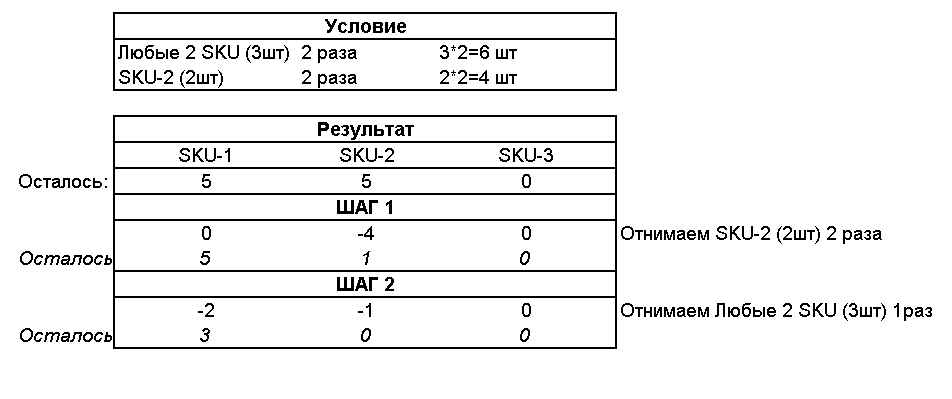Answer the question
In order to leave comments, you need to log in
What is the condition check algorithm?
It is impossible to think over the verification algorithm.
Essence. Let's say there are 3 types of goods (SKU-1, SKU-2, SKU-3).
There are combinations of goods that can be written off:
1. Any 2 types of goods (SKU) (3pcs). That is, combinations of SKU-1 and SKU-2, SKU-1 and SKU-3, SKU-2 and SKU-3.
2. Product SKU-2 (2pcs).
Total available:

Answer the question
In order to leave comments, you need to log in
Duck, according to the first condition, any 2 types of goods can be written off in a quantity of 3 pcs.
If the first write-off is completely from SKU1 and the second is in the amount of two units from SKU1 and one from SKU2, then exactly 4 remains in SKU2 for two write-offs from the 2nd condition.
Or I apparently misunderstood the first condition, but "Any 2 types of goods 3pcs." All the same, it should also imply the possibility of combining these goods, because it is not indicated there that the write-off can be any, but all 3 pieces must be written off from the 1st SKU
Didn't find what you were looking for?
Ask your questionAsk a Question
731 491 924 answers to any question